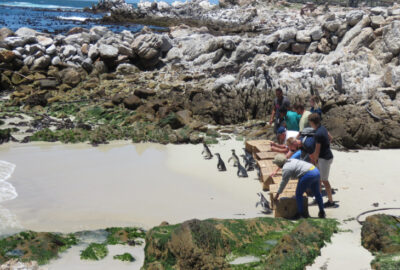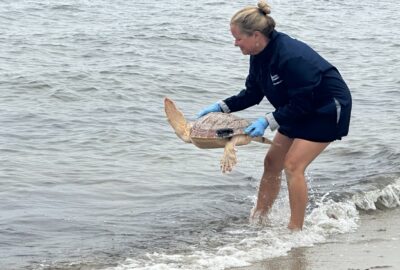
John Durban, PhD
Senior Scientist and Chair
Spatial Ecology, Mapping, and Assessment, Anderson Cabot Center for Ocean LifeEducation
PhD, Zoology, University of Aberdeen, United Kingdon, 2002
BSc, First Class Honors, Zoology, University of Aberdeen, United Kingdom, 1998
About
Dr. John Durban has been conducting research for more than 30 years with federal, academic and non-profit organizations to support marine mammal conservation in the U.S. and overseas. He integrates field and analytical methods to study the health and population status of endangered whales, the effects of climate change on marine mammals, and the direct impacts of anthropogentic activities on at-risk cetaceans.
John has pioneered several novel field approaches for data collection, including the use of drones for quantitative photogrammetry measurements of health. At the population level, John conducts analyses of abundance, demographics and life history using photographic mark-recapture methods, and assessments of movements, habitat use and spatial risk using satellite telemetry, pioneering the application of Bayesian statistical methods. He has extensive experience of leading large collaborative research teams in the field and laboratory. Current research projects include monitoring the health of endangered North Atlantic Right Whales and endangered Southern Resident killer whales in the eastern North Pacific, studying health and population status of killer whales as apex predators in rapidly changing marine systems in Alaska, and quantifying the behavioral responses of social dolphins to Navy sonar exposure.
John’s research also has a focus on effective communication of science, specifically the use of powerful drone photographs of whale health in media platforms that can reach the public and increase their understanding and engagement on key conservation issues.
Affiliations
- Associate Senior Scientist, North Gulf Oceanic Society
CV




